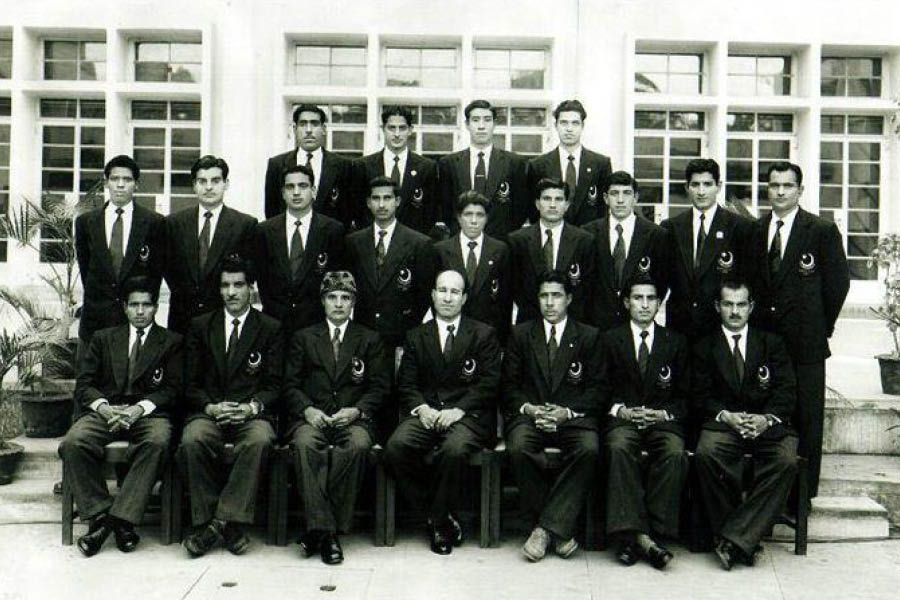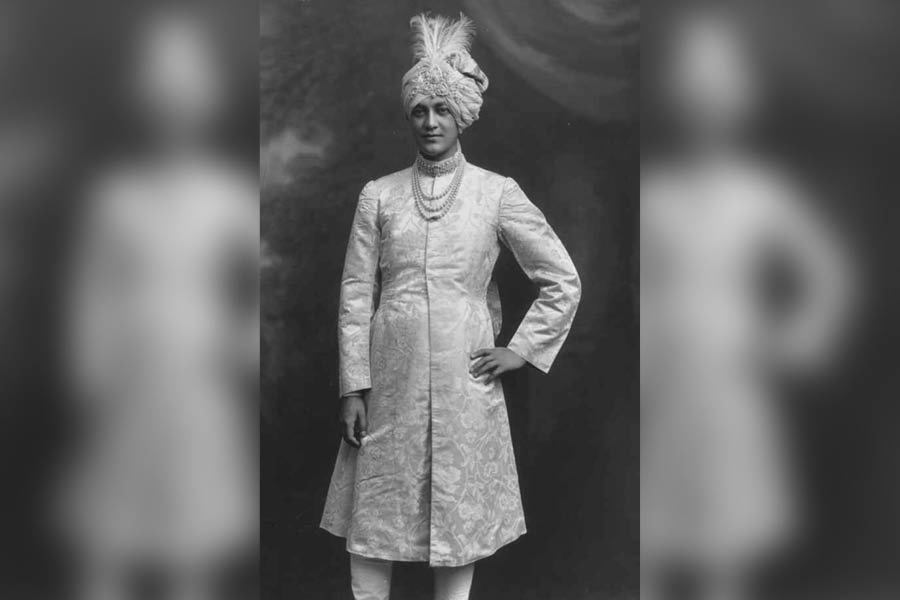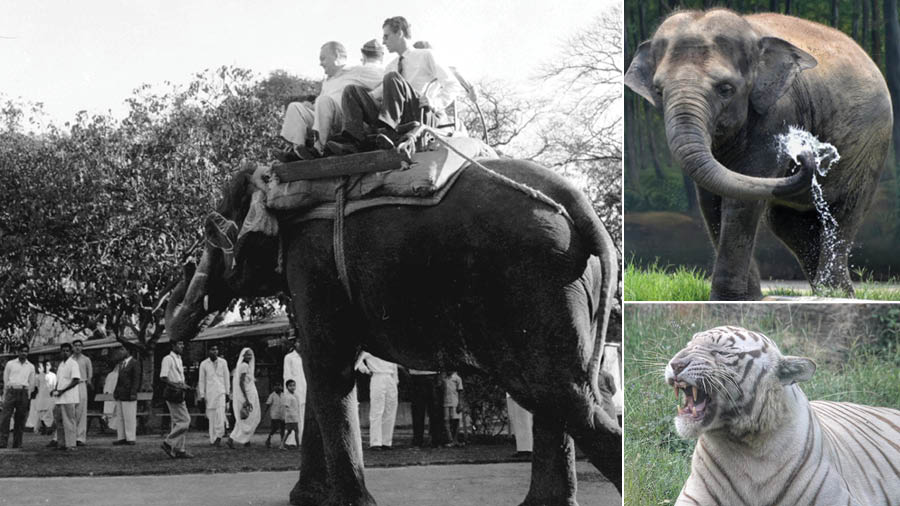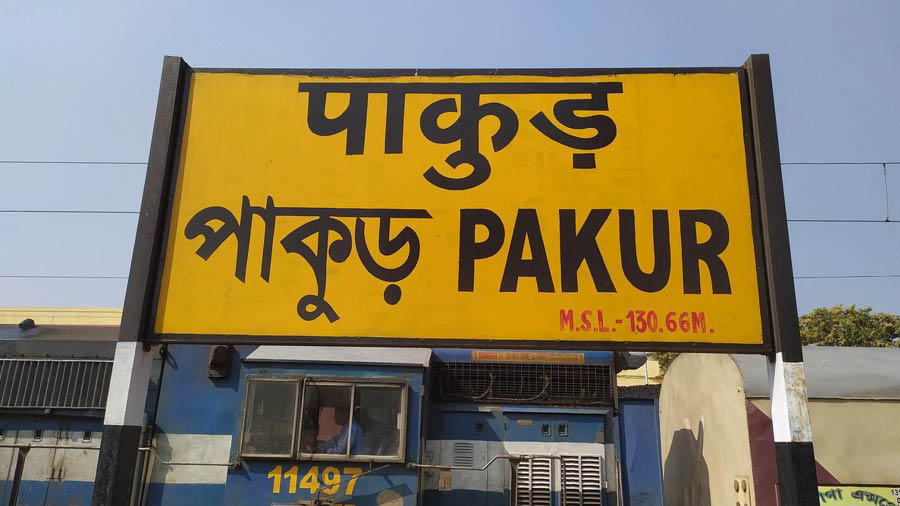Fans of Sadaat Hasan Manto’s will be well familiar with the name of Toba Tek Singh – Manto’s 1955 short story. But while Manto’s fictional protagonist Bishan Singh, from the town of Toba Tek Singh, never quite made it to India, a real-life personality from the Punjab* town not only came to India but for a brief while shone so bright that he became the heartthrob of a section of Calcutta’s football loving fans.
The East Bengal Club of Calcutta has always been well known for their inspiring performances against foreign teams as well as for being possibly the first Indian club to recruit foreign football talent. During the WWII years, Fred Pugsley – an Anglo-Burmese refugee from Burma – lit up the Calcutta Maidan while turning out for East Bengal. Over the years, many have followed his footsteps and some have etched their names in the hearts of East Bengal fans.
In 1952, a barely 20-year-old arrived in Calcutta to play for East Bengal Club. He was from Toba Tek Singh in Pakistan. His name was Masood Fakhri. Fakhri was not the first Pakistani to wear the red and gold jersey. Taj Mohammad, the ace defender of the 1940s had already turned out for East Bengal few years back. But Fakhri’s arrival would trigger unbelievable excitement.
A supremely talented attacker who operated on the left wing, Fakhri’s first season turned out to be a golden one for East Bengal. In the 1951-52 season, East Bengal won the Calcutta Football League 1st division as Fakhri netted 14 goals. But it was only the start. East Bengal also have had triumphant visits to Delhi where they lifted both the Durand Cup and the DCM Trophy. At that point of time, Durand – the oldest football tournament outside the British Isles – was regarded as the most prestigious tournament in India. But what really made Fakhri a darling for the club’s fan base was his performance against arch-rivals Mohun Bagan.
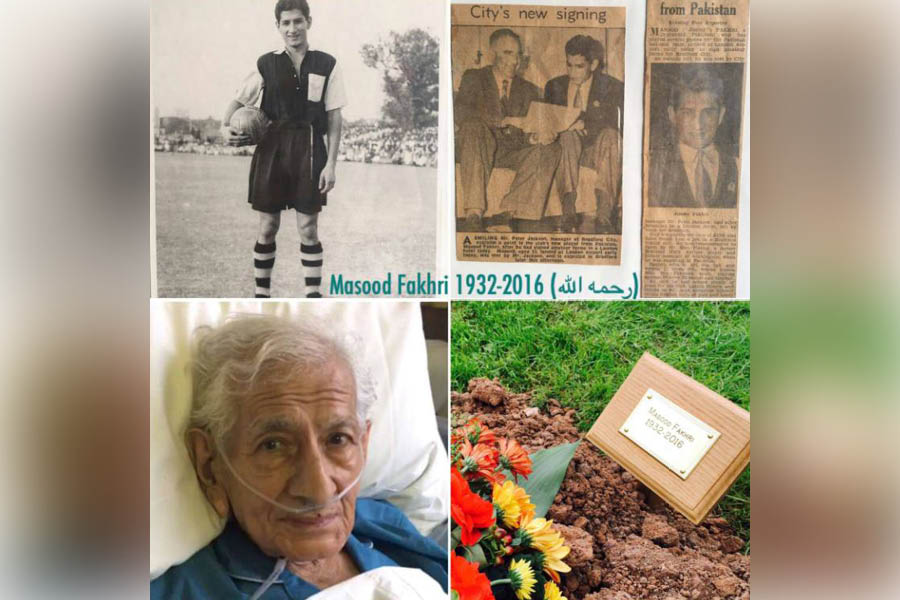
Masood Fakhri decided to quit football for reasons unclear. What is known is he got married and settled down in the Wales where he spent the rest of his life before passing away in 2016, in relative anonymity.
Fakhri scored in his first two encounters with Bagan as East Bengal won both matches by solitary goal margin. For any new arrival at East Bengal or Mohun Bagan, even today, there is no better or quicker way to become a fan favourite than delivering a match-winning performance against the bitter rivals. Coupled with a trophy-laden maiden season, Fakhri’s winning turns against Bagan made him an instant heartthrob. Added to this were his handsome looks and young age, and all ingredients for a superstar were ready.
It was barely six years since dreadful religious riots had been witnessed in Calcutta and little over five years since the Partition of the subcontinent that had led to the creation of Pakistan. Tensions between the two major religious communities still ran high. In fact, the 1952-53 Calcutta Football League was abandoned midway due to recurrence of religious riots. And amidst all of it, proving true to the adage that ‘sports unites and doesn’t divide’, East Bengal fans of all ages, social classes and religions celebrated this young man from far-away Pakistani Punjab as one of their own.
Yet, it was not always smooth sailing. In the 1953 IFA Shield final, East Bengal played Indian Cultural League (ICL) of Bombay – a football team established by football enthusiasts of the Bombay film industry. East Bengal’s playing XI included apart from Fakhri, another Pakistani footballer, Niaz. After two consecutive matches were drawn goalless, the third final^ ended in a 1-1 stalemate. Before this match, the Bombay side lodged a protest over the inclusion of Fakhri and Niaz in East Bengal’s team, claiming they had not been permitted by Pakistani football officials for the same. The Indian Football Association (IFA) warned East Bengal not to field Fakhri and Niaz but the club ignored such warning. Afterwards, the IFA, as a punitive measure, awarded the shield to ICL.
Fakhri represented East Bengal till 1954. He was part of the East Bengal team that toured the USSR and Romania during the 1953-54 season and took part in the Romanian Youth Festival in Bucharest. In that tournament, Fakhri scored the lone goal for East Bengal in a 1-6 drubbing at the hands of Lebanon XI. During this time, he also made his brightest mark for the Pakistani national team when in a match against Singapore at the 1954 Manila Asian Games, Fakhri became the first Pakistani player to net a hat-trick.
In 1955, he signed with East Bengal’s city rivals Mohammedan Sporting. Once again, Fakhri produced scintillating form and played a key role as Sporting won the Rovers Cup tournament in Bombay. His football inspired many, among them a teenaged Subimal ‘Chuni’ Goswami who was awed by both Fakhri’s ball skills and his drop dead gorgeous looks.
As the 1955-56 season drew to a close, Fakhri received contact from England for a potential move to Bradford City – a 3rd division team in the English League. After prolonged negotiations, Fakhri finally signed for Bradford on 8th August, 1956. However, after just one season with Bradford, aged just 25 and at the prime of his career, Masood Fakhri decided to quit football for reasons unclear. What is known is he got married and settled down in the Wales where he spent the rest of his life before passing away in 2016, in relative anonymity.
Today, his football legacy is almost forgotten in both India and Pakistan. But once Masood Fakhri had shone with the ball at his feet like no other.
* Toba Tek Singh, in British Punjab before Partition, is now a city in Faisalabad division of Pakistani Punjab
^ Before the advent of tie-breakers, final of knockout tournaments were replayed till a result was produced
